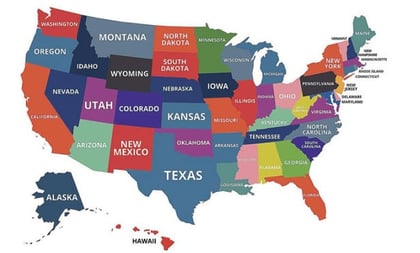To get a big picture of how Social Security and Medicare bills are received in Congress, the National Committee to Preserve Social Security and Medicare, a group that lobbies to protect financial and health benefits of older Americans, designed a report card for each state’s U.S. congressional members.
The scorecard reports how each representative and senator in the U.S. Congress voted on bills that affect Social Security, Medicare and other retiree-focused legislation.
Most of the votes are along party lines, but when looked at in the aggregate, the scorecard provides a picture of how Congress responds, or doesn’t, on issues that affect those who claim Social Security or use Medicare, Medicaid or the Affordable Care Act.
The site offers an interactive map showing how Senate or House representatives voted in each state during the 2019-2020 sessions. Below is a key to each of the votes that were taken. Readers can either click on the map or use the full scorecard for the tabulated information.
The group looked at four votes cast in the House and three in the Senate. Here is a description of those votes:
House of Representatives Votes
Protecting Americans with Preexisting Conditions Act of 2019 (H.R. 986)
This bill passed 230-183.
Rollcall was May 9, 2019.
The bill disallowed states from offering less comprehensive Affordable Care Act marketplace insurance. According to the NCPSSM, which supported passage of the bill, it was helpful to 40% ACA of enrollees age 50-64 who might have one or more pre-existing conditions.
Status: Rejected in Senate. See S.J. Res 52 below.
Strengthening Health Care and Lowering Prescription Drug Costs Act (H.R. 987)
Passed: 234-183.
Rollcall was May 16, 2019.
This bill reduced the cost of prescription drugs by increasing availability of generic drugs, as well as strengthened the ACA for those with pre-existing conditions. The NCPSSM supported passage.
Status: Received in the Senate on May 20, 2019, and referred to Health, Education, Labor and Pensions.
Elijah E. Cummings Lower Drug Costs Now Act (H.R. 3)
Passed: 230-192
Rollcall was Dec. 12, 2019
This bill allowed the Health and Human Services Department to negotiate prices for certain high-cost drugs with pharmaceutical manufacturers on behalf of Medicare, which was prohibited from doing so by saw. The bill created a $2,000 Medicare beneficiary annual out-of-pocket cap for spending on prescription drugs, and provided partial coverage for Medicare hearing, dental and vision services. The NCPSSM supported passage.
Status: Senate read for first time Aug. 13 and is still pending. Thus far, Senate Majority Leader Mitch McConnell has refused to consider.









 September 09, 2020 at 03:49 PM
September 09, 2020 at 03:49 PM











